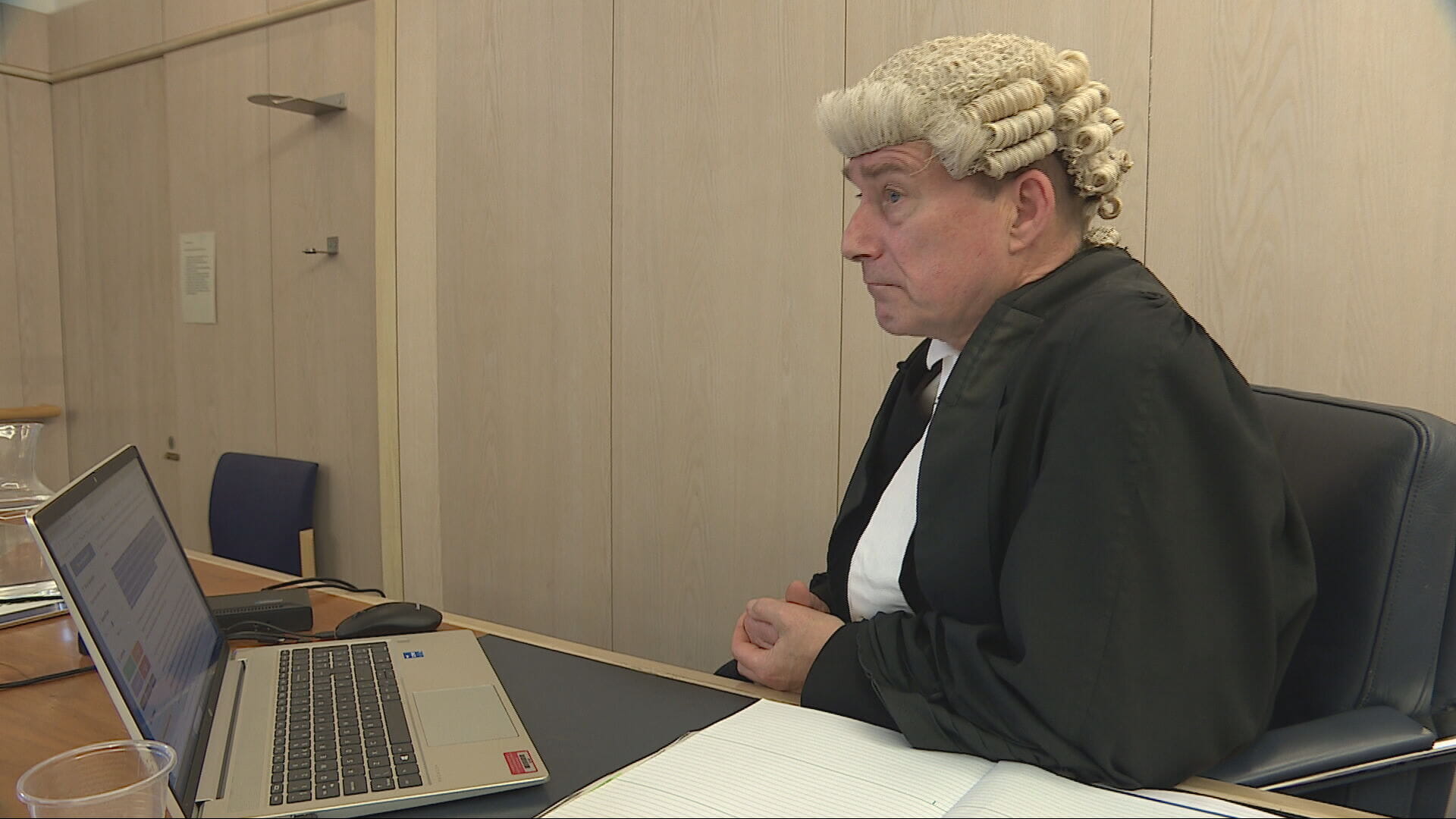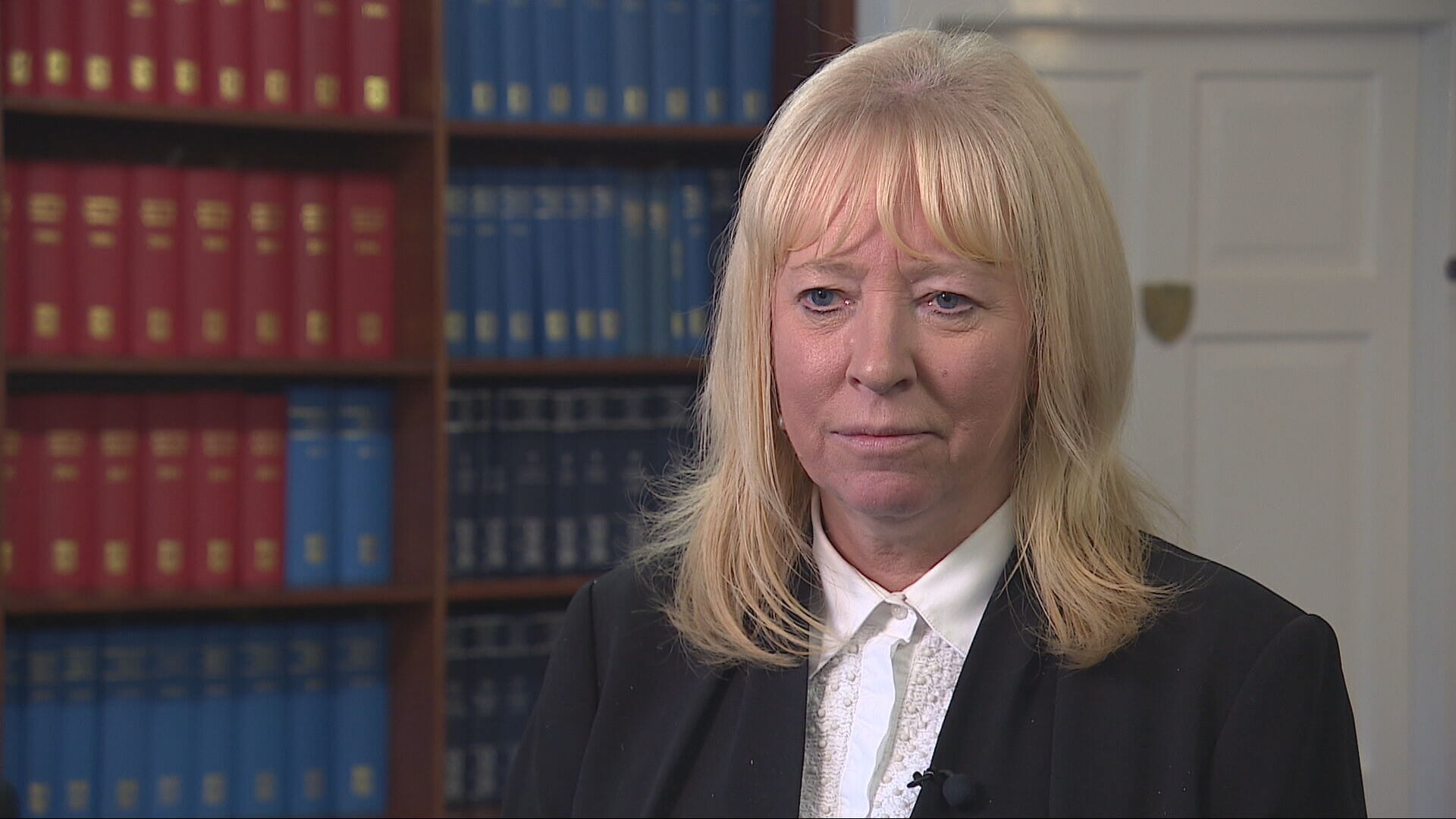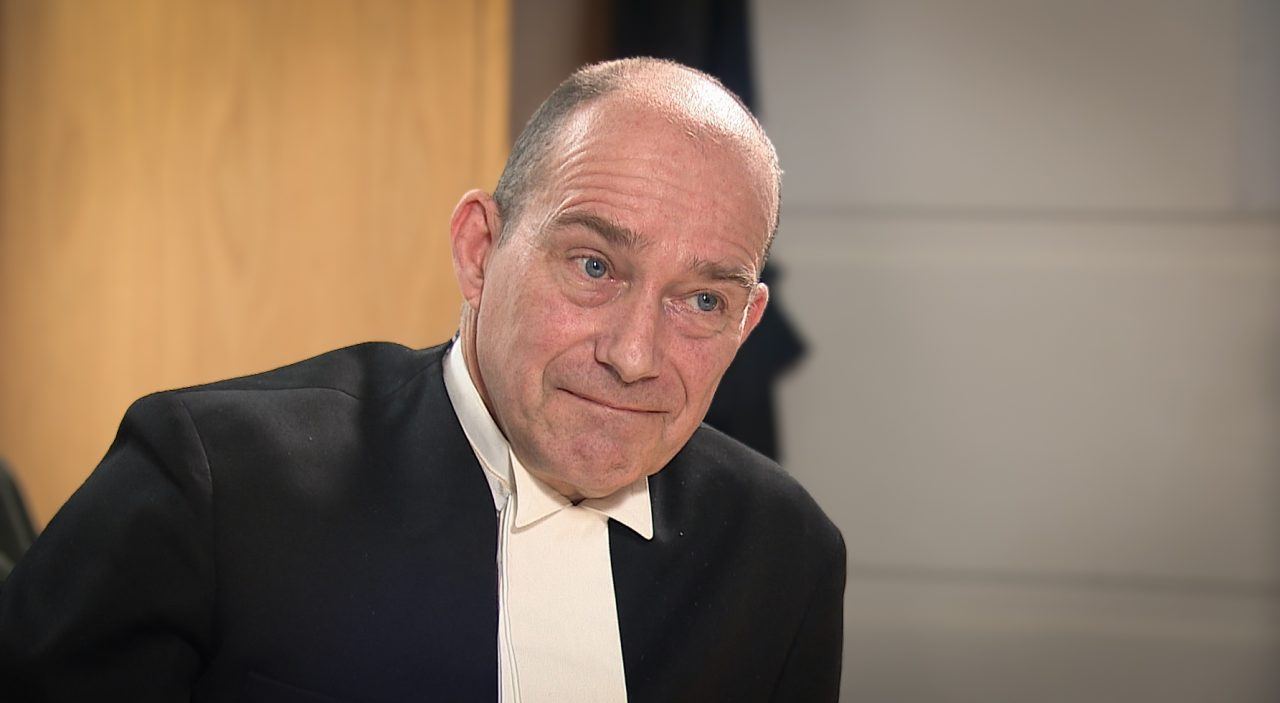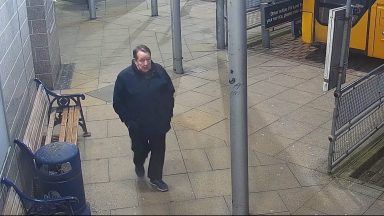Key Points
-
 Sheriff Alastair Carmichael continues presiding over criminal cases despite losing his natural voice to motor neurone disease (MND).
Sheriff Alastair Carmichael continues presiding over criminal cases despite losing his natural voice to motor neurone disease (MND). -
 He uses text-to-speech technology with a synthesised version of his own voice recorded before his speech deteriorated.
He uses text-to-speech technology with a synthesised version of his own voice recorded before his speech deteriorated. -
 Carmichael works in real time during court sessions, typing judgments and directions into multiple voice systems.
Carmichael works in real time during court sessions, typing judgments and directions into multiple voice systems. -
 His determination to remain on the bench reflects a lifelong commitment to public service and adaptability in the face of illness.
His determination to remain on the bench reflects a lifelong commitment to public service and adaptability in the face of illness. -
 Support from NHS specialists and Scottish Courts IT has enabled him to maintain transparency and confidence in the judicial process.
Support from NHS specialists and Scottish Courts IT has enabled him to maintain transparency and confidence in the judicial process.
When Sheriff Alastair Carmichael enters Courtroom 4 at Dundee Sheriff Court, the ritual is unchanged: the clerk calls “court rise,” everyone stands, and he takes his seat on the bench. But what happens next is anything but routine.
The rulings and directions are his own, yet the voice delivering them is not. It’s computer-generated – a synthesised version of his voice, captured before motor neurone disease (MND) stole his ability to speak.
Sheriff Carmichael is one of around 140 sheriffs serving in Scotland, but is believed to be the only judge in the world to preside over criminal cases using text-to-speech technology.
“I was diagnosed in January last year,” he told Scotland Tonight.
“My first hint that something wasn’t right was my voice. Around May 2023, I developed a slight lisp. I thought that it would probably go away. It didn’t.”
He remembers struggling with consonants, recognising the pattern from an old friend who had MND.
“As time has gone on, MND has progressed,” said Sheriff Carmichael. “My voice is now almost totally shot; my swallowing is under pressure. I’m still mobile and able to do everything that I need to, although how long this will last for is anybody’s guess.”
 STV News
STV NewsMotor neurone disease is progressive and incurable. It affects people differently and unpredictably, making prognosis difficult. For Sheriff Carmichael, it has primarily affected the muscles involved in speech and swallowing.
Despite the diagnosis, he decided to remain on the bench.
“I have spent almost my entire adult working life in public service,” he said. “It’s important to me to carry on doing this for as long as I can.
“The diagnosis was something that I half expected, but it was still a massive disappointment. You don’t know if it will take weeks, months or years to do its work. I decided to try to carry on working and see where things would go.”
Creating a new voice for the courtroom
Working with NHS Tayside’s MND team and specialists at SpeakUnique, Sheriff Carmichael recorded his own voice while he still could, creating a personalised library of phrases.
Today, every remark in court begins on a keyboard, travelling through one of four text-to-speech systems he operates in real time.
He said: “There were two American voices which kept coming to the microphone for certain documents for reasons that we couldn’t fathom. One document usually started off with the American and then switched to George, a British voice.”
A new system created by the Scottish Courts IT team now routes most documents through “George,” which he jokingly describes as making him sound “rather cultured and sophisticated”.
He avoids over-programming preset phrases.
“That would create a robotic and sterile environment,” he said.
In court, he occasionally warns jurors: “Sometimes I don’t know which voice is going to come out.” It raises a laugh but also signals transparency in a process that depends on public confidence.
A different kind of pressure
Typing at speed to manage a live courtroom is not without challenges.
“You have to trust yourself to be able to deal with the unexpected,” Sheriff Carmichael explained. “Each system has its own peculiarities. I have to use phonetic spelling, subdivide words and do some second-guessing.”
Mistakes are inevitable. He recalls accidentally dismissing a witness mid-questioning because he hit the wrong key trying to keep the laptop awake.
“But in many ways, it’s really just like saying the wrong thing with your natural voice,” he said.
“We all do it, so you correct the mistake and carry on.”
“He never stopped”
Sheriff Principal Gillian Wade, who oversees the Dundee jurisdiction, says she expected to discuss options for stepping back when Sheriff Carmichael first told her about his diagnosis.
 STV News
STV News“That certainly wasn’t the case,” she told Scotland Tonight. “He wanted to continue to work for as long as possible and to do so as fully as possible. Apart from the odd day off for medical appointments, he has had no time off through sickness.”
Outside the court, Sheriff Carmichael remains active and mobile. He continues to play golf and maintains his routines, adapting as the condition evolves.
“What I do wonder every now and again is what MND will do to me, and by extension, to my family,” he said. “Perhaps I am avoiding the grim reality, but this isn’t something that I choose to dwell on.
“I prefer to think about it more along the lines of how you can best use the time that is left to you. Even if your natural voice is stuffed, you can find other ways to communicate and to carry on working.”
He is clear about the support that has enabled him to continue, adding: “I could not have done this by myself. If anybody watching or listening to this, including someone with a diagnosis or their employer, gets something positive from it, that would give me huge pleasure.”
The technology, he says, is simply a tool that enables him to continue fulfilling an important public duty.
The delivery may have changed. But the decisions and the words behind them remain the same.
You can watch the full interview with Sheriff Alistair Carmichael on Scotland Tonight at 10.40pm on Wednesday evening or catch up on the STV Player.
Follow STV News on WhatsApp
Scan the QR code on your mobile device for all the latest news from around the country




























